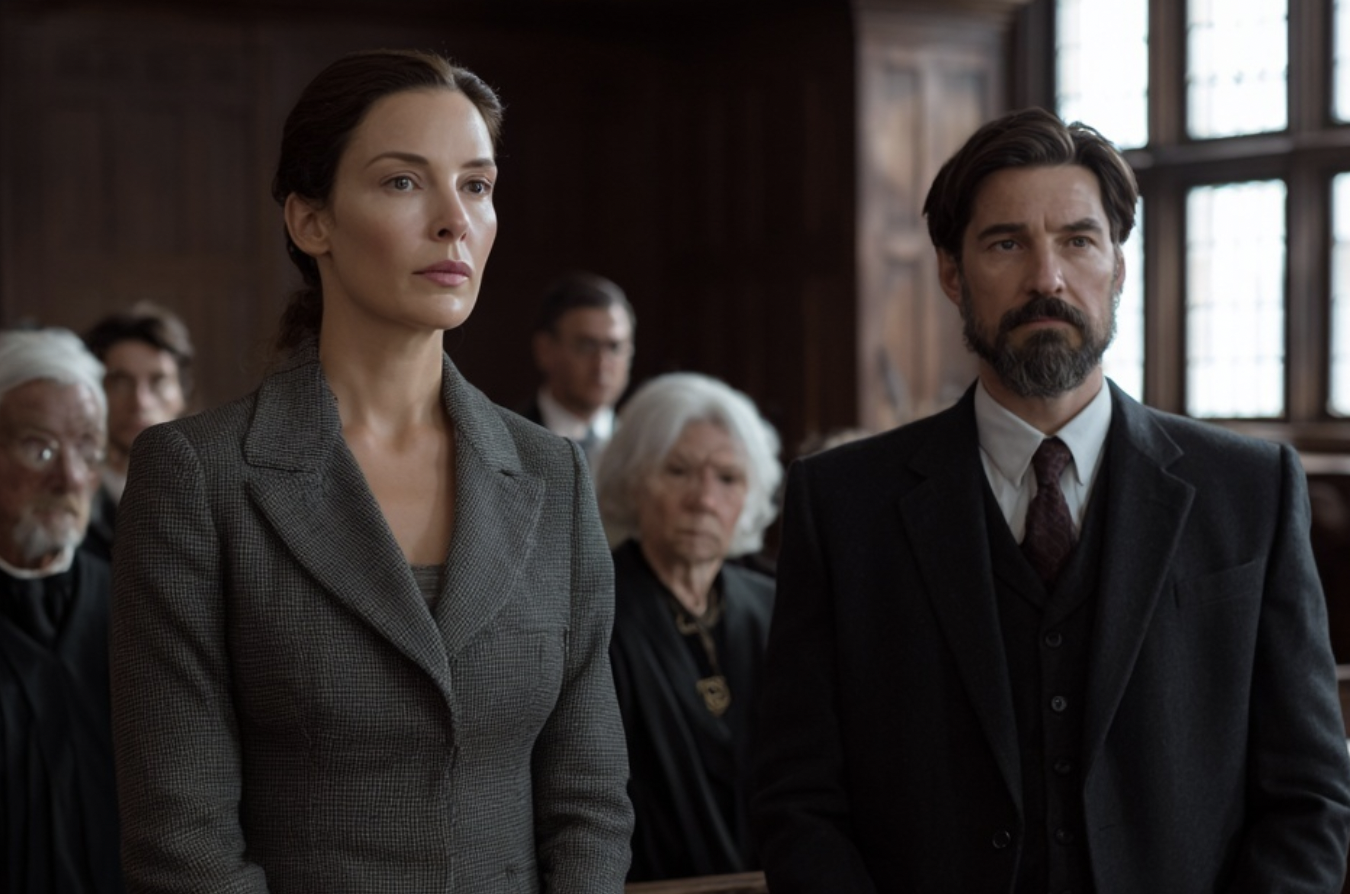“You won’t win a thing in court!” my ex-husband jeered mockingly. But the moment my lawyer entered the corridor, a heavy silence descended—and tears began to stream down his face.
His derisive laughter had echoed throughout the deserted hallways of the courthouse—a sound both bitter and humiliating. He was flanked by his so-called “entourage”: a costly attorney clutching a crocodile-skin briefcase, and his mother, whose faux sympathy barely disguised a clear judgment.
“We only want you to stay away from Dima,” she spoke sweetly, a venomous gleam hidden beneath her words. “He’s endured enough already.”
I glanced at Dmitry. His polished appearance bore the mask of false virtue. The same man who had systematically dismantled my world now posed as the injured party. Amazingly, everyone bought into his narrative.
My court-appointed defender—a young man diverting his eyes to the floor more than meeting mine—nervously shuffled papers, seemingly resigned to failure. Following our initial consultation, he advised me to “settle at any price.”
“Neighbors have provided statements,” Dmitry continued with a mocking tone. “They all heard your screaming fits. Your inability to control yourself.”
He skillfully left critical details out—such as my screams when he confined me to a locked room, or the moments I discovered yet another flirtatious exchange on his mobile. In his portrayal, I was merely a hysterical woman, and he the unfortunate martyr enduring “a woman like that” for years.
Scanning the waiting area, I noticed the crowd’s reactions: sympathy and pity for him, and judgment and disdain directed at me. I wished to disappear through the cold marble floor. Ready to do anything to end this embarrassment, yet a small, persistent flame flickered deep within me, refusing to be extinguished.
Later that very evening, after the initial meeting with his legal team, I reached out to an old university friend working at a law office. Not for assistance, but simply to vent. She listened quietly before saying, “I know someone. He’s a tough one, but cases like this are his forte. I’ll give him your number.” I held no expectations.
“Look at yourself, Lena. You are isolated. Who will stand by your side?” Dmitry hissed, leaning in close. His expensive cologne mingled with my rising dread. “You will lose it all—your house, your finances, your reputation. Nothing will remain.”
Suddenly, the far end doors swung open, capturing everyone’s attention.
A tall figure entered, dressed impeccably in a dark gray suit. He appeared less like a lawyer and more like a precise surgeon or an architect; cold, sharp eyes studying the room like a diagnostic scan.
Dmitry’s confident facade wavered visibly.
The man approached me directly, disregarding everyone else.
“Elena Andreevna? Kirill Valeryevich,” he introduced himself in a calm, assured tone. “Your friend contacted me. I have reviewed the case files. We are ready to proceed.”
The confident smile vanished from Dmitry’s face. Casting a glance at his smug attorney and then the newcomer, I glimpsed an emotion unfamiliar to me—fear.
His mocking laughter ceased, his mother gripped his arm anxiously. When Kirill opened his briefcase and placed a thick folder before my stunned public defender, Dmitry slumped onto the bench, tears streaming—tears of furious defeat.
The hearing was merely preliminary, yet the courtroom’s atmosphere was suffocatingly tense.
Dmitry’s lawyer—slick and overly self-assured—began with his statement. He attacked my emotional stability, alleging I tried to manipulate his client.
“Your Honor, the plaintiff’s side seeks to defame my client’s impeccable reputation,” he declared grandly, gesturing dramatically. “This is a textbook case of female vindictiveness after a breakup.”
Kirill remained silent, attentively making concise notes. When his moment came, he rose calmly, avoiding theatrics or grandstanding.
“Your Honor, we do not deny my client’s emotional responses,” he said even-toned. Dmitry’s counsel sneered. “But we intend to frame those feelings with proper context.”
Kirill presented a single sheet to the judge.
“This document is a bank statement linked to Dmitry Petrovich, dated just three days before his petition was filed.
A substantial transfer was made to this account from his employer—the very company whose financial woes he repeatedly lamented to my client while pressuring her into selling her inherited apartment.”
Dmitry appeared electrified by the revelation. His attorney’s expression darkened immediately.
“This is irrelevant!” he protested vehemently.
“On the contrary,” Kirill countered steadily. “This evidence directly highlights a pattern of psychological and financial coercion. It’s not revenge. It’s proof.”
The judge reviewed the document thoughtfully before calling for a recess.
In the hallway, Dmitry approached me hastily. The feigned victim’s expression was back, but this time it seemed uneasy.
“Lena, why are you doing this?” He reached to take my hand; I withdrew sharply. “You understand this is a misunderstanding. We can resolve everything amicably.”
His voice reverted to the familiar, manipulative tone, the one that had so often caused me to question my memories and feel blame for everything.
“Let’s just talk—without them. Remember how good we were together? Are you truly willing to ruin everything over some paper?”
For a fleeting moment, I almost surrendered to the old habit: avoiding conflict and longing for peace.
However, Kirill stood beside me, focusing solely on me, not Dmitry.
“Elena Andreevna, you mentioned your ex-husband frequently recorded your disputes on a voice recorder to use against you?”
I nodded, still uncertain where this was leading.
“Just clarifying,” he said calmly, then faced Dmitry. “I hope you’re recording this ‘peaceful conversation’ as well—for the record.”
Dmitry recoiled as if scorched. Rage distorted his face. His entire facade—unmasked.
Key Insight: In circumstances where manipulative behavior and false victimhood prevail, uncovering concrete evidence and seeking strong legal representation can shift the balance toward justice.
Though this ordeal was fraught with emotional turmoil and power struggles, persistence and the right support became the turning point in reclaiming dignity and truth.
In summary, facing manipulation and untruths in court can be daunting. However, steadfast determination, accompanied by trusted counsel, can expose deception and protect one’s rightful claims.
